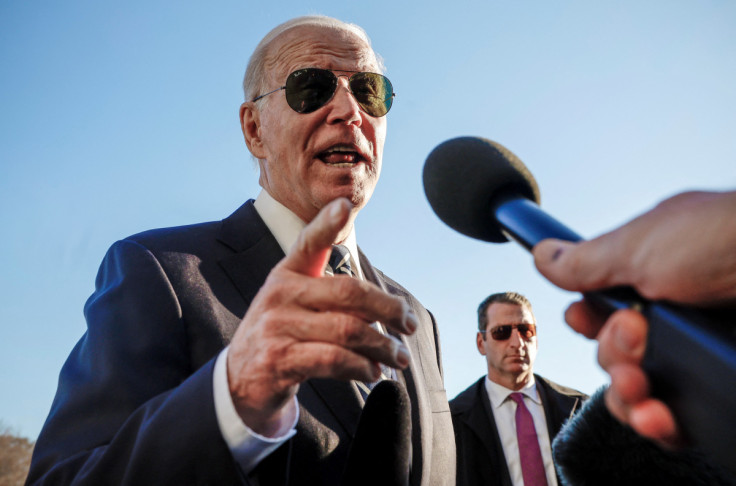Biden State Of The Union: 'If China Threatens Our Sovereignty, We Will Act'

KEY POINTS
- President Biden cited the shooting down of a spy balloon as one of the U.S.'s responses to Chinese threats
- Biden said the U.S. invested in technology and its allies to deter Chinese aggression
- The president went off-script when he challenged lawmakers to name a person who would switch with Xi
In his second State of the Union speech, President Joe Biden warned China that the U.S. would take action if its sovereignty gets threatened.
Biden alluded to the suspected Chinese spy balloon that flew over U.S. airspace last week, which he ordered to shoot down once the balloon no longer posed a threat to civilians.
"I am committed to work with China where it can advance American interests and benefit the world," Biden said, according to the White House website.
"But make no mistake about it: as we made clear last week, if China threatens our sovereignty, we will act to protect our country. And we did," the president added.
Biden also highlighted in his speech to Congress the changes in the bilateral ties between the U.S. and China, arguing that the country is in its "strongest position" to counter China.
Biden said the narrative that China is rising while the U.S. is losing its influence across the world is no longer happening under his watch.
The president explained that his administration had invested in innovation, protected its allies and modernized the military to deter Chinese aggression.
Biden added that he told Chinese President Xi Jinping that he seeks competition, not conflict.
But the president went off-script when he demanded lawmakers to name a person who would switch places with Xi, according to The Epoch Times.
Biden's remarks about China in his speech reflect the rising tensions between the two superpowers following the spy balloon incident.
The Department of Defense revealed that China had refused a request for a secure call between Defense Sec. Lloyd Austin III and Chinese Defense Minister Wei Fenghe on the day a U.S. fighter jet shot down the alleged spy balloon.
Despite China's refusal, the defense department said, "Open lines of communication will continue."
As the recovery efforts for the balloon debris are currently underway, the White House declared that it has no intention of returning the balloon to China.
National Security Council spokesperson John Kirby said intelligence experts would examine the Chinese balloon, which could maneuver itself.
China has already rebuked the U.S.'s decision to shoot down the balloon, claiming that it was a weather research balloon that came to American airspace "completely accidentally."
The Chinese foreign ministry said in a statement that it is protesting the "use of force" by the U.S. to attack the balloon, adding that it was "an obvious overreaction."
The incident forced Secretary of State Antony Blinken to cancel his high-stakes visit to China last week, which aimed at building on the initial talks between Biden and Xi last November.

© Copyright IBTimes 2025. All rights reserved.






















